Related Research Articles

Naturism is a lifestyle of practicing non-sexual social nudity in private and in public; the word also refers to the cultural movement which advocates and defends that lifestyle. Both may alternatively be called nudism. Though the two terms are broadly interchangeable, nudism emphasizes the practice of nudity, whilst naturism highlights an attitude favoring harmony with nature and respect for the environment, into which that practice is integrated. That said, naturists come from a range of philosophical and cultural backgrounds; there is no single naturist ideology.
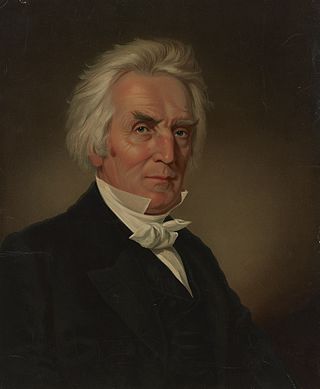
Alexander Campbell was an Ulster-Scots immigrant who became an ordained minister in the United States and joined his father Thomas Campbell as a leader of a reform effort that is historically known as the Restoration Movement, and by some as the "Stone-Campbell Movement." It resulted in the development of non-denominational Christian churches, which stressed reliance on scripture and few essentials.

The Baptist General Convention of Texas (BGCT), more commonly known as the Texas Baptists, is a Baptist Christian denomination in the U.S. state of Texas. It is affiliated with the Southern Baptist Convention and the Baptist World Alliance. Texas Baptist offices are located in the city of Dallas, though convention staff are located across the state. According to a denomination census released in 2023, it claimed 2,038,53 members and 5,375 churches

James Otis Sargent Huntington (1854–1935) was an American Episcopal priest and professed monk who founded the Order of the Holy Cross, a Benedictine monastic order for men, whose mother house is now located in West Park, New York.

The American Association for Nude Recreation (AANR) is a naturist organization based in the United States.
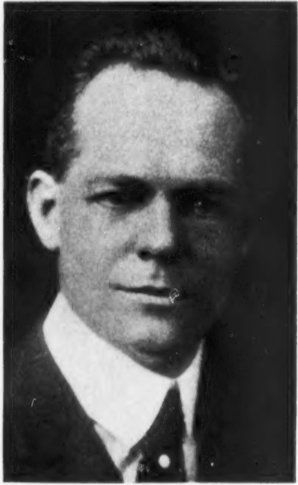
IlsleySilias Boone (1879–1968) was a charismatic speaker, a powerful organizer, a magazine publisher and the founding father of the American Sunbathing Association (ASA)—later reorganized as the American Association for Nude Recreation (AANR). As a publisher he distributed the first nudist magazine in the United States. That publication eventually led to a challenge to the U.S. Postal Service's ban against sending obscene materials through the mail. Boone took his challenge all the way to the U.S. Supreme Court which struck down the ban.

Christian naturism is the practise of naturism or nudism by Christians.
The Federal Council of Churches, officially the Federal Council of Churches of Christ in America, was an ecumenical association of Christian denominations in the United States in the early twentieth century. It represented the Anglican, Baptist, Eastern Orthodox, Lutheran, Methodist, Moravian, Oriental Orthodox, Polish National Catholic, Presbyterian, and Reformed traditions of Christianity. It merged with other ecumenical bodies in 1950 to form the present day National Council of Churches.

Jennings Ligon Duncan III is an American Presbyterian scholar and pastor.
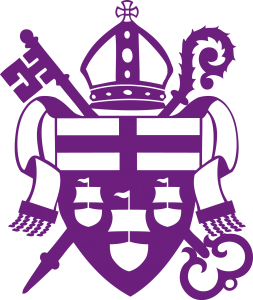
The Diocese of Virginia is the largest diocese of the Episcopal Church in the United States of America, encompassing 38 counties in the northern and central parts of the state of Virginia. The diocese was organized in 1785 and is one of the Episcopal Church's nine original dioceses, with origins in colonial Virginia. As of 2018, the diocese has 16 regions with 68,902 members and 180 congregations.

The fundamentalist–modernist controversy is a major schism that originated in the 1920s and 1930s within the Presbyterian Church in the United States of America. At issue were foundational disputes about the role of Christianity; the authority of the Bible; and the death, resurrection, and atoning sacrifice of Jesus Christ. Two broad factions within Protestantism emerged: fundamentalists, who insisted upon the timeless validity of each doctrine of Christian orthodoxy; and modernists, who advocated a conscious adaptation of the Christian faith in response to the new scientific discoveries and moral pressures of the age. At first, the schism was limited to Reformed churches and centered around the Princeton Theological Seminary, whose fundamentalist faculty members founded Westminster Theological Seminary when Princeton went in a liberal direction. However, it soon spread, affecting nearly every Protestant denomination in the United States. Denominations that were not initially affected, such as the Lutheran churches, eventually were embroiled in the controversy, leading to a schism in the United States.
Joseph Harrison Jackson was an American pastor and the longest serving President of the National Baptist Convention, USA, Inc.
Otis Moss III is the pastor of Chicago's Trinity United Church of Christ. He espouses black theology and speaks about reaching inner-city black youth.
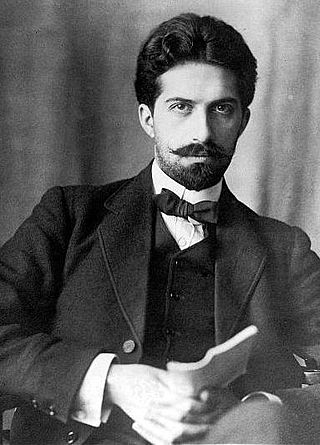
Caleb Williams Saleeby FRSE was an English physician, writer, and journalist known for his support of eugenics. During World War I, he was an adviser to the Minister of Food and advocated the establishment of a Ministry of Health.

From 1649 to 1660, Puritans in the Commonwealth of England were allied to the state power held by the military regime, headed by Lord Protector Oliver Cromwell until he died in 1658. They broke into numerous sects, of which the Presbyterian group comprised most of the clergy, but was deficient in political power since Cromwell's sympathies were with the Independents. During this period, the term "Puritan" becomes largely moot, therefore, in British terms, though the situation in New England was very different. After the English Restoration, the Savoy Conference and Uniformity Act 1662 and Great Ejection drove most of the Puritan ministers from the Church of England, and the outlines of the Puritan movement changed over a few decades into the collections of Presbyterian and Congregational churches, operating as they could as Dissenters under changing regimes.
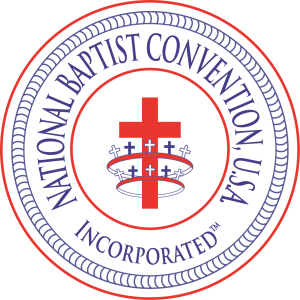
The National Baptist Convention, USA, Inc., more commonly known as the National Baptist Convention, is a Baptist Christian denomination headquartered at the Baptist World Center in Nashville, Tennessee and affiliated with the Baptist World Alliance. It is also the largest predominantly and traditionally African American church in the United States and the second largest Baptist denomination in the world.

Richard Ungewitter was a German naturist and pioneer of the Freikörperkultur movement and one of its first organizers. There was a völkisch element in Ungewitter's ideas.
Elton Raymond Shaw (1886–1955) was a churchman, author and publisher, lecturer and educator, campaigner in the prohibition and temperance movement and a naturist.

Sunshine & Health was an American nudist magazine published from 1933 until 1963. It has been described as the "flagship magazine" of the nudist movement in the US. It was published monthly, and sold at newsstands as well as being distributed by subscription through the mail.
References
- 1 2 3 4 ENNIS, THOMAS W. (17 February 1981). "HENRY S. HUNTINGTON, PIONEER OF NUDISM IN U.S., 99". The New York Times . Retrieved 2016-07-24.
- 1 2 "Shivering Nudists Don Clothes at Convention" . Joplin Globe. 13 October 1934. p. 4. Retrieved 2016-07-24– via Newspaper Archive.
- ↑ Drew 2012, p. 253.
- ↑ "Pastor says Nudist Cult Place to Spend Week-End" . Muscatine Journal And News Tribune. 15 September 1933. p. 14 col A. Retrieved 2016-07-24– via Newspaper Archive.
- ↑ ALLAN, DAVID G. (7 March 2008). "In the Berkshires, Turning Back the Clock". The New York Times . Retrieved 2016-07-24.
nudi
- ↑ Green 2012, p. 108.
- 1 2 3 4 Rosen 2004, pp. 235-.
- ↑ Stern, Max (11 November 1933). "Nudism Magazine Assailed" . Hammond Times. p. 1 col B. Retrieved 2016-07-24– via Newspaper Archive.
- ↑ "Nudism advocate dies at 99". Gettysburg Times. 17 February 1981. p. 2.
- Drew, Bernard A. (2012). Henry Knox and the Revolutionary War Trail in Western Massachusetts. McFarland. ISBN 978-0-7864-8965-7.
- Rosen, Christine (2004). Preaching Eugenics: Religious Leaders and the American Eugenics Movement. Oxford University Press. ISBN 978-0-19-988266-3.
- Green, Stewart M. (2012). Scenic Routes & Byways New England. Rowman & Littlefield. ISBN 978-0-7627-8950-4.